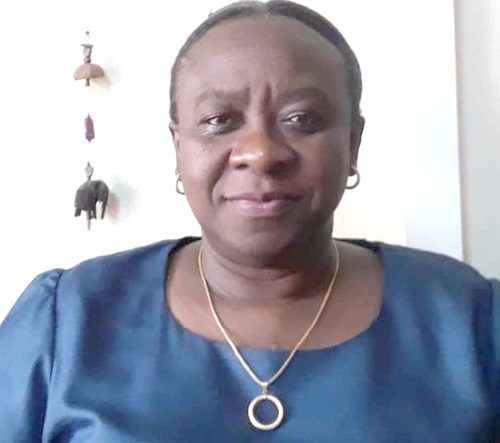
Vaccination exercise won’t cover children
Children will not be part of the COVID-19 vaccination exercise that began on Monday, March 1, Dr Isabella Sagoe-Moses, the Head of the Reproductive and Child Health Department of the Ghana Health Service (GHS), has disclosed.
That, she explained, was because there is currently inadequate experience and data regarding usage of the vaccines in children since they were not part of initial trials.
She stated that worldwide research conducted on finding a vaccine for the virus had concentrated on adults for which reason only people who are 18 years and above would receive the vaccines.
“At the beginning of the outbreak of the pandemic, it was noted that the elderly were at risk and as is often the case during pandemics, there is more attention on the people who are most at risk.
It is very likely that further research will provide more information on children. Some of the child related issues currently being looked at include whether the virus can be transferred to babies through breastfeeding so hopefully, something will also be done about vaccination for children” she emphasised.
Advertisement
Dr Sagoe-Moses, who disclosed this in a telephone interview with the Junior Graphic, said the GHS would continue to treat children who would be infected with the virus by managing the symptoms they presented with.
“If it is fever the child who has COVID-19 presents with, we will treat the fever and if it is difficulty in breathing, we will be monitoring their oxygen level to know when to give oxygen,” she explained.
She advised children that now that there was no vaccine for them with regards to COVID-19, their biggest protection would be to adhere to the safety protocols which include wearing of the face mask, observing physical distancing, avoiding handshakes, hugs and other forms of close contact.
She also emphasised on regular hand-washing with soap under running water, and the use of sanitisers when water is not available, as well as eating balanced meals (including fruits and vegetables) to boost their immunity.
COVID-19 vaccines
Ghana, last Wednesday became the first country to receive the COVID-19 vaccine from Global Access Facility (COVAX), which has 92 beneficiary countries signed on to it.
The consignment, which is the first, has 600,000 doses of the Oxford AstraZeneca COVID-19 vaccine, Covishield.
Dr Sagoe-Moses added that because children were not part of this vaccination exercise, they have not been specifically targeted for the COVID-19 vaccine safety campaign that the GHS is embarking on.
She said for now, the GHS was working with the Ghana Education Service (GES) and the School Health Education Programme (SHEP) to educate teachers, children and their parents about the pandemic.
COVID-19 cases involving children
On whether more children were getting infected with the virus in the country or not, Dr Sagoe-Moses said generally, more people were now getting the virus than last year and children were not exempted.
Unlike formerly, she said now they were also seeing children with critical illness from the virus pointing out, however, that majority of the children who had the virus were still asymptomatic or had mild illness.
Community Spread
She said the country was now at a stage of the pandemic known as, community spread, where the risk of getting infected was very high.
“So unlike in the early days of the pandemic when most cases had contact with infected persons from outside the country, now you cannot say that because in a community spread, you can get infected from your home, your neighbour, your classmate or a friend.
It is so close to us now and that is why we don’t have to compromise on the protocols,” she said.
Dr Sagoe-Moses said some children thought because this or that person was their friend they could let their guards down and that was why some of them after close of school walk home in groups holding each other’s hands with their masks off.
“These things are risky. Friends and classmates all have the potential of infecting you with the virus so you should not go touching, hugging and holding them.
You have to maintain the two-metres distance whenever possible and you must make sure you wear your masks all the time when you are in public,” she advised.
